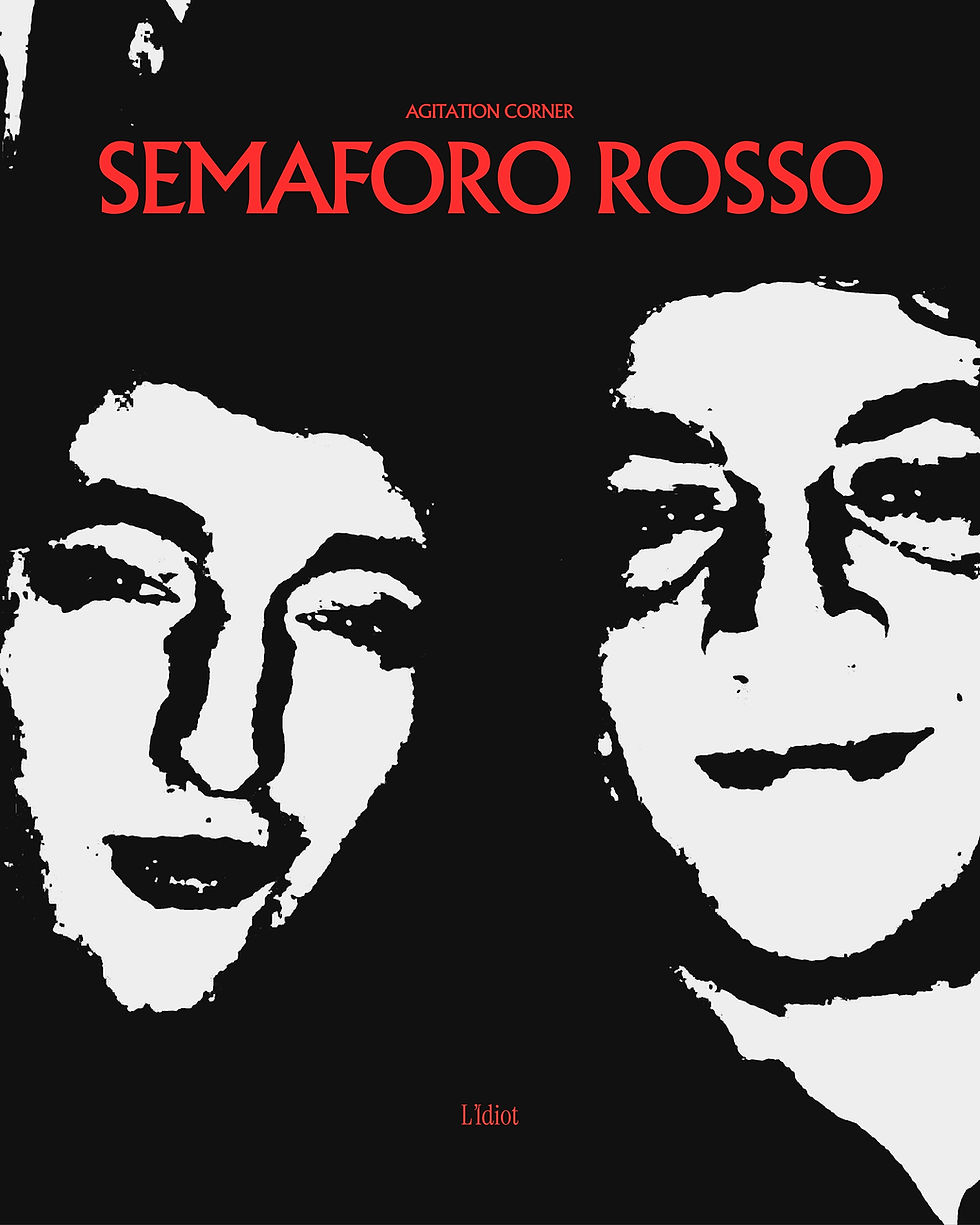The Small Popular Conscience
- Ferdinando Petrarulo
- Sep 29, 2025
- 4 min read

God is dead, and we are all orphans looking for a home. I tell myself this every day as I sift through the filth. Forgive me, well-meaning reader, with a kiss on the forehead, but filth it is. Not because I wish to flaunt some pronounced nihilistic bent, but because I want to deliver ideas in the most practical way possible. God dies every day, buried under the muck of the world surrounding a young man nearing a quarter of a century. A friend explained it to me: we’re realizing we are no longer history’s privileged children. We’re becoming familiar with a very simple idea: we don’t live in the earthly paradise promised to us with every new iPhone model; our age is no less harsh than the eras we’ve always viewed with a certain smug, unjustified superiority. We arrive wholly unprepared for the great disappointment. This isn’t El Dorado that we’re heading toward, and our value system isn’t sturdy enough to reassure us. That’s why God keeps dying every day—because we, the living, cannot hold on to Him. We were busy living the dream. Now it’s time to spit the truth on ourselves, to shout it at one another: we’ve been too distracted by the foam-rubber context around us to forge ideals strong enough to face, without consequences, the greatest disappointment now closer than ever.
We believe in nothing and believe in everything; today we adopt ideas we’ll abandon tomorrow. Everything matters and nothing matters—because that’s how it has to be, and heaven forbid otherwise. Until now, things have even gone better than we expected. Then came the darkness. The world around us has deceived us for too long; now it slaps us in the face: we’ve put our faith in a system teetering on the edge. Its mechanisms are full of cracks, and collapse has never been so close. Only now do we realize we should have cultivated something more than our little garden of tech-house nights and Instagram carousels—where an old man at the seaside sits between shots of someone’s backside—to keep our “alt-pop” levels in check. “All is lost,” the reader might think, but it isn’t so.
Because—layered brown images aside—history always offers a second chance. Ours arrived late, but it arrived. And it’s a disguised opportunity, the kind you don’t recognize at first. It’s not a call to arms—not yet, perhaps. Rather, it’s the beginning of an awakening that will cost more than a few traumas. We liked the warmth of the quiet night of “consume, someone else will take care of the world”; we hadn’t factored in having to open our eyes and face the dawn of a new popular feeling. We didn’t think we’d have to start thinking again, but so it must be.

From previous generations, we’ve borrowed the only lifeline left to us, our only true chance at redemption: coming together in groups of interest, whatever they may be. The forms have changed, but the sharing remains. From art to music, cinema to literature. From student associations to all kinds of online communities. Whatever the sphere, we’ve—thankfully—kept gathering around many small fires that still burn.
Dim or blazing, they burn. And they must be harnessed for a new, greater goal. The rebirth of my generation lies entirely here. The mass mobilization against the genocide in Gaza is a perfect example, the living manifesto of this generational reflection. We’ve realized there are causes far larger than the flowerbed beneath our feet—causes that can move each conscience and convert every micro-community into one great wind. Few have stayed on the sidelines. The rest, even if sterile ideological debate remains a major obstacle, have mobilized. This is the moment we must embrace a new birth. Whether driven by emulation or not, what matters is a common goal, a single great beacon. The seed of the new, small popular conscience has been planted. This is not a risk-free process, nor an easy one. Generations that truly changed history before us paid a far higher price than we can imagine. Some paid with blood, others devoted their lives to changing things. Our moment is now—or the abyss. There are no more alternatives.
We’ve entered a new phase of our lives as social animals. We’ve given our entire selves to the system, hoping to get the best in return; we’ve been handed the worst. We thought someone else would eventually take care of the world. We didn’t know it would inevitably fall to us, and now the key is singular. We must reconvert all the interest groups we’ve built so far—thinking we were nurturing hobbies or side passions—into countless small youth movements with an ideological conscience and one great ultimate purpose: reclaiming the collective. Uniting all the small fires into one great blaze. In spite of those who crave collapse, for where there is social or economic crisis, there is speculation. I once described my peers as many small gusts of wind. Now this is my appeal: let the gusts become one storm, let the tempest rise, stronger than ever. Only then can we survive a historical era of intellectual decay, where ideals and values are bare branches seeking new sap.
God died in Nietzsche’s time, then in the time of young Guccini, and He will go on dying for a long time yet. But we can save ourselves from all this—only by blowing hard, together, as we never thought we’d have to before the world we knew told us to go to hell.







Comments